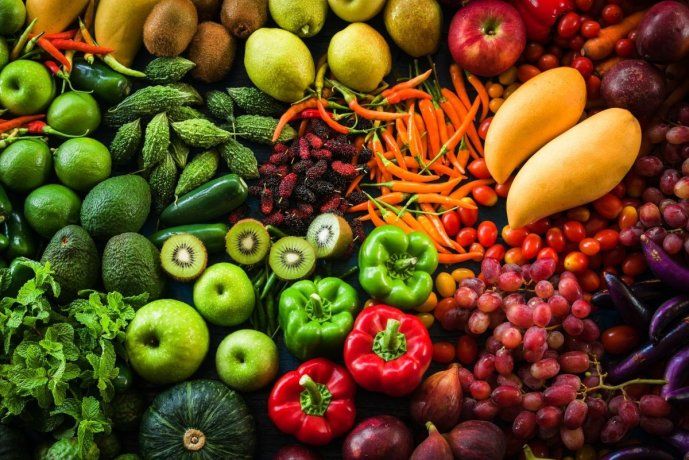Intestinal health It is one of the main concerns for the well -being of people. While there are several supplements and products that promise immediate results, specialists emphasize improve habits and be constant.
The gastroenterologist and colorectal surgeon, James Kinrossof the Imperial College of Londonindicates that the key to having good intestinal health is not in fleeting medications, but in the proof of sustainable life habits and backed by science. “Think about your intestine as a living ecosystem that needs a little care”, He explained.
According to the expert, The balance of intestinal microbioma is decisive for the digestive system, and for the general health. Its approach proposes eight simple practices that can be applied in daily life to protect and enrich this delicate ecosystem.
intestinal microbiota.jpg
The balance of intestinal microbiome is decisive for the digestive system.
1. Fiber consumption
For the specialist, Increase fiber consumption It is one of the most effective measures. It is found in fruits, vegetables, legumes and whole grains. It is recommended to reach 30 grams daily.
However, among the signs of insufficient consumption it mentions constipation, tiredness and lack of energy. “Fiber not only regulates intestinal transit, too Absorbs harmful toxins and molecules in the intestine and feeds the intestinal microbiota”, He expanded.
According to the specialist, Adding only 7 additional fiber per day can reduce the risk of strokes and strokesin addition to favoring concentration and attention.
Fruits and vegetables

2. Lower alcohol consumption
Another key measure is Limit the consumption of alcoholic beverages. “Leaving alcohol is one of the best things you can do, not only for your intestine, but for your general health,” Kinss said.
Alcohol deteriorates the beneficial bacteria of the intestinehinders the absorption of vitamins and minerals, increases inflammation and constitutes a risk factor for Intestine cancer.
Some options such as fermented beer or red wine, in moderation, are less harmful than distillates or ultraprocessed drinks with high sugar content.
The beer return.jpg

3. Contact with nature
Gardening It is presented as a favorable practice for microbiome. The soil contains the greatest microbial diversity on the planet and, Through contact with plants and earth, those microorganisms can reach the intestine.
“From COVID-19, we have obsessed too much with hygiene,” he said and stressed that moderate exposure to beneficial bacteria and fungi reinforces intestinal health.
Exercises

Freepik
4. Regular exercises
Kinross also highlighted the importance of performing physical activity of 30 to 40 minutes, four or five times a week.
Investigations show that Active people have a more diverse microbiota. In addition to favoring the intestine, exercise protects the heart, brain and helps weight control.
On the other hand, the social life It also plays a relevant role. Kinross said Human interactions influence microbiome balance.
“People who are part of a broad and complex social network have a more diverse microbiome and a healthier intestine,” he said. He physical contactfrom sharing meals to a hug, facilitates the transfer of beneficial microbes.
people talking on the street

The specialist was categorical about the consumption of medicines: “It is essential not to take antibiotics unless it is absolutely necessary”. He stressed that they should only be used to treat bacterial infections, since Its indiscriminate use generates a “Internal climate crisis”By destroying essential microbial communities.
Excess antibiotics in early stages of life increases the risk of Obesity, type 2 diabetes, asthma and intestine cancer. The specialist advised, if he had received a treatment, reinforce the diet with plant -rich plant foods, fermented products and multi -peppery probiotic supplements for eight weeks.
Ibuprofen.jpg

According to Kinross, the meditation It can favor the diversity of microbioma By reducing stress hormoneswhich are harmful to intestinal bacteria.
Dedicate between 15 and 20 minutes a day To full attention it contributes to digestive and general well -being.
Finally, he stressed the importance of breastfeeding to prepare the digestive system in early childhood. Breast milk contains live and oligosaccharide bacteria that They promote the growth of beneficial microbes in the baby’s intestine.
Children fed with formula have more inflammatory bacterial strains, linked to worse health results.
Source: Ambito
I am an author and journalist who has worked in the entertainment industry for over a decade. I currently work as a news editor at a major news website, and my focus is on covering the latest trends in entertainment. I also write occasional pieces for other outlets, and have authored two books about the entertainment industry.




